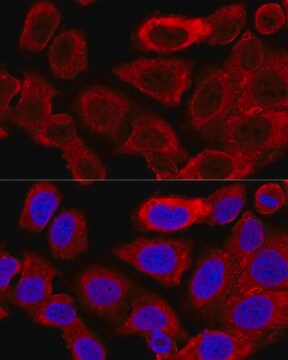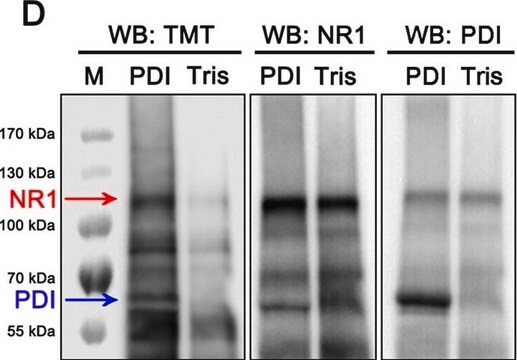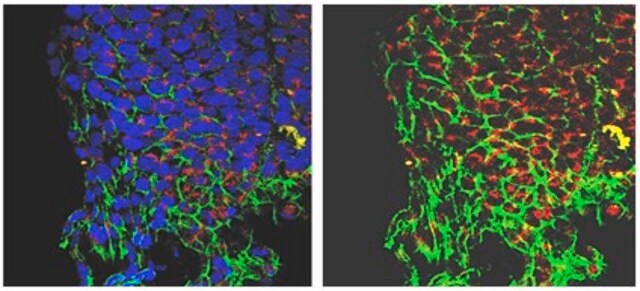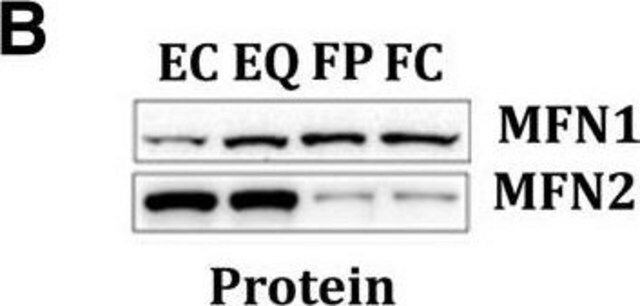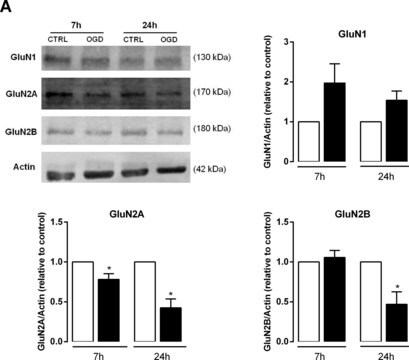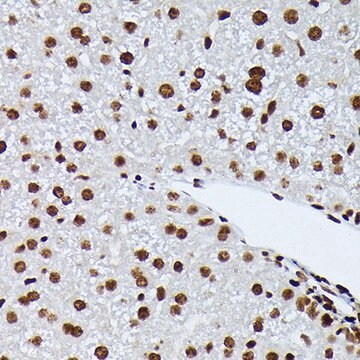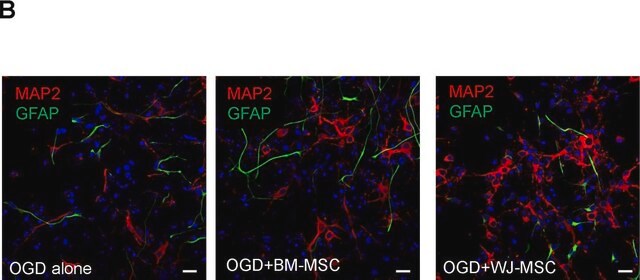ABC41-M
Anti-Mitofusin-1 Antibody
from rabbit, purified by affinity chromatography
Sinónimos:
Fzo homolog, Transmembrane GTPase MFN1, Mitofusion-1
About This Item
Productos recomendados
biological source
rabbit
Quality Level
antibody form
affinity isolated antibody
antibody product type
primary antibodies
clone
polyclonal
purified by
affinity chromatography
species reactivity
human, rat, mouse
technique(s)
western blot: suitable
NCBI accession no.
UniProt accession no.
target post-translational modification
unmodified
Gene Information
human ... MFN1(55669)
General description
Specificity
Immunogen
Application
Cell Structure
Organelle & Cell Markers
Quality
Western Blot Analysis: 0.5 µg/mL of this antibody detected Mitofusin-1 in 10 µg HeLa cell lysate.
Target description
Three isoforms of Mitofusin-1 are produced by alternative splicing with molecular weights of ~42 kDa, ~71 kDa, and ~84 kDa Uncharacterized bands may appear at ~45 kDa, ~48 kDa, and ~55 kDa in some lysates.
Physical form
Storage and Stability
Analysis Note
HeLa cell lysate
Other Notes
Disclaimer
¿No encuentra el producto adecuado?
Pruebe nuestro Herramienta de selección de productos.
Storage Class
12 - Non Combustible Liquids
wgk_germany
WGK 1
flash_point_f
Not applicable
flash_point_c
Not applicable
Certificados de análisis (COA)
Busque Certificados de análisis (COA) introduciendo el número de lote del producto. Los números de lote se encuentran en la etiqueta del producto después de las palabras «Lot» o «Batch»
¿Ya tiene este producto?
Encuentre la documentación para los productos que ha comprado recientemente en la Biblioteca de documentos.
Nuestro equipo de científicos tiene experiencia en todas las áreas de investigación: Ciencias de la vida, Ciencia de los materiales, Síntesis química, Cromatografía, Analítica y muchas otras.
Póngase en contacto con el Servicio técnico